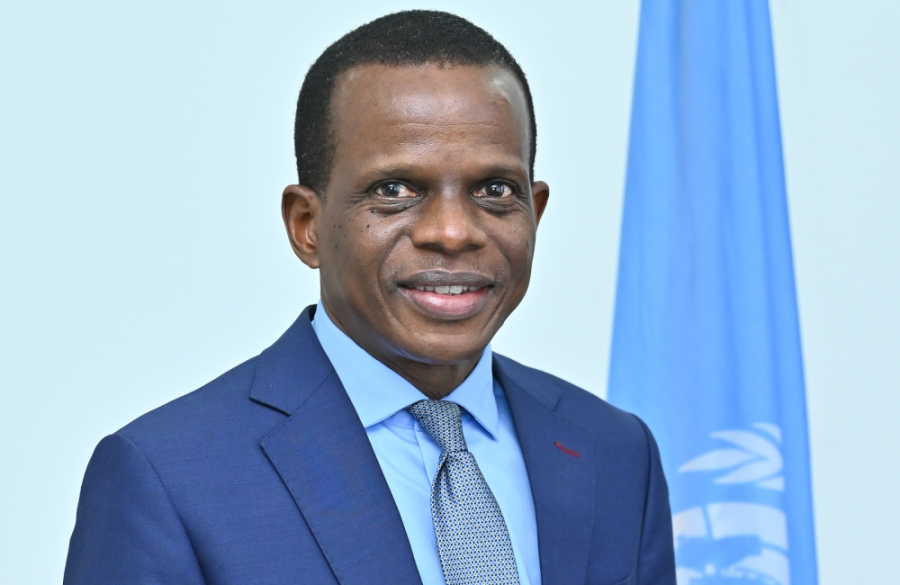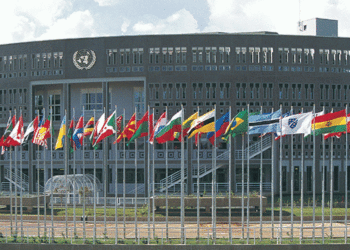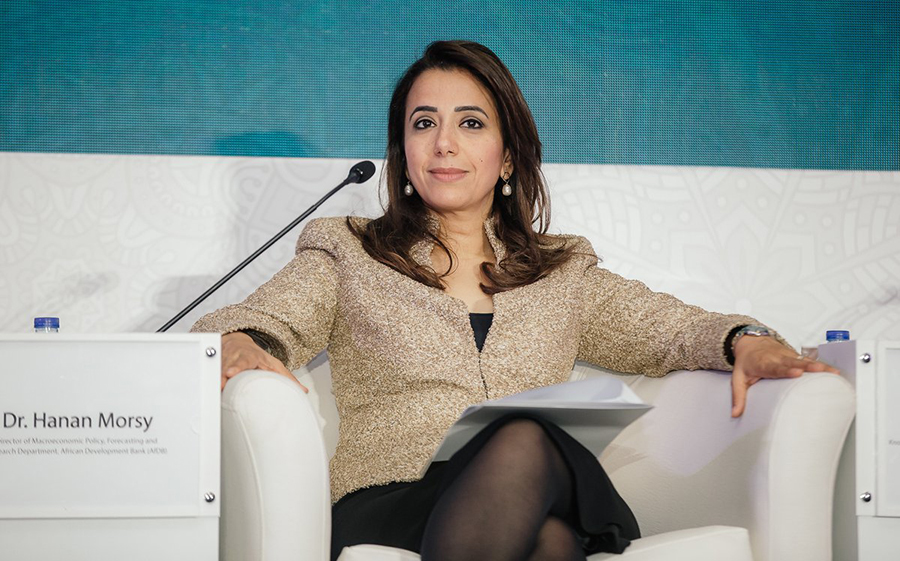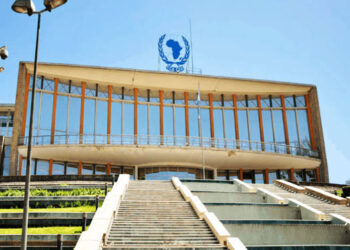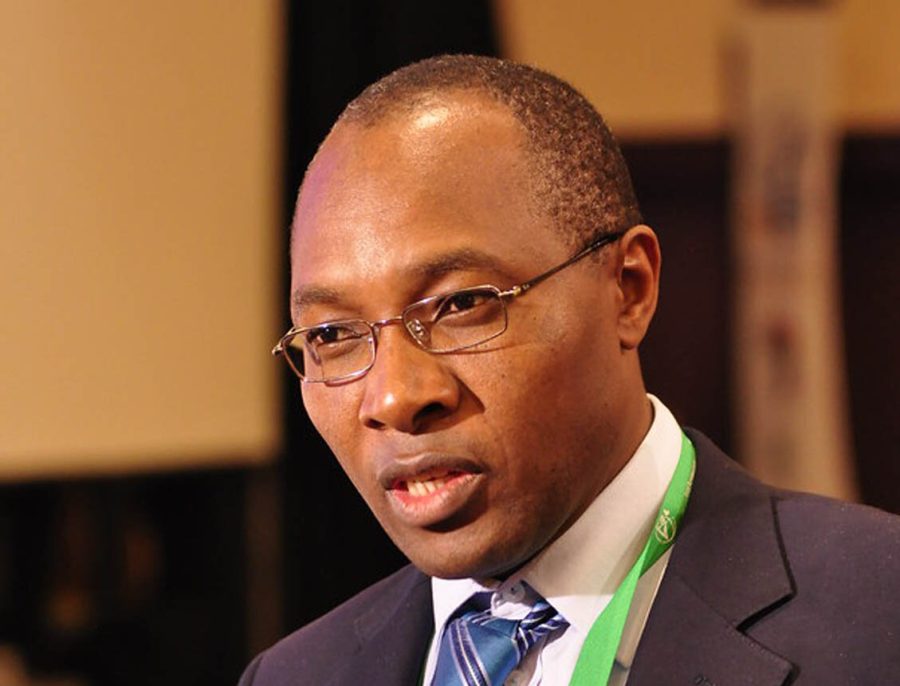Key highlights:
- Africa needs sufficient energy, the right infrastructure mix, agricultural and food systems that are resilient to external shocks, and climate mitigation measures that reduce the impact of climate change
- ECA working toward streamlining the agreement’s national strategies within the UNCT’s programmes of work as a first step toward mainstreaming the AfCFTA within the UN entities
- Traders in most African countries do not have regional value chains and supply chains.
The Economic Commission for Africa (ECA), said the continent needs sufficient energy, the right infrastructure mix, agricultural and food systems that are resilient to external shocks, and climate mitigation measures that reduce the impact of climate change to tackle poverty.
This was disclosed by the Acting Secretary-General of ECA, Antonio Pedro at the 55th Meeting of the Conference of African Ministers of Finance, Planning, and Economic Development in Addis Ababa, Ethiopia.
He warned of the looming debt crisis and climate change impacts that will characterise the crises in Africa.
Fighting Poverty
Pedro warned that Africa has witnessed from presented evidence that the effects of COVID-19, the war in Ukraine, the looming debt crisis and climate change impacts characterise the deep and interlocking crises in Africa, he added:
- “Therefore, overcoming these challenges, occasioned by the overlapping crises, will require African countries to formulate innovative and multifaceted strategies that provide a range of policy options.
- “Thus, the continent needs sufficient energy, the right infrastructure mix, agricultural and food systems that are resilient to external shocks, and climate mitigation measures that reduce the impact of climate change.’’
The ECA boss noted that innovative and scalable solutions are imperative and must be developed for Africans by African countries and investing in green sectors in Africa has significant benefits.
Energy and Trade
He also noted that value addition in mining is yet another avenue for resource mobilisation that has remained largely unexploited on the African Continent.
- “A just energy transition remains an imperative for the continent, and universal access to electricity and sustainable industrialisation are essential for Africa’s economic transformation.’’
They also added that implementing the agreement establishing the African Continental Free Trade Area (AfCTA) continued to be the blueprint for the African pro-poor economic recovery adding the need to expedite the agreement’s implementation, given its innumerable benefits to member states, including resilience to shocks.
- “We acknowledge that harmonisation of the AfCFTA protocols and domestication of the national AfCFTA strategies are critical for speeding up its implementation.
- “The Commission is working toward streamlining the agreement’s national strategies within the UNCT’s programmes of work as a first step toward mainstreaming the AfCFTA within the UN entities.’
Trade expansion
ECA’s Director of Regional Integration and Trade Division, Mr Stephen Karingi, urged that Africa needs to expand t trade for deeper regional integration, citing that Europe and Latin America deepened their regional integration through trade expansion; hence, Africa should take a queue and do same, he said:
- “Collective efforts are required from all member states, regional economic communities, key partners and stakeholders to realise the economic benefits of integration and the African Continental Free Trade Area (AfCFTA),’’
- “It is about the standards, tariffs and cost of moving goods. Currently, traders in most countries do not have regional value chains and supply chains.
- “A regional supply chain needs financing. But if you do not have the money, people will start demanding and sourcing the goods from elsewhere.
- “Consumers want to see the product they prefer all the time. This has to do with production and ability to supply it all the time,’’
He urged Member states will need to address integration challenges, which include inadequate financial resources; poor infrastructure networks; increasing violence, terrorism and political instability, adding that the integration agenda is experiencing slow implementation of policies and agreements.
- “For instance, the Protocol on the Free Movement of Persons, Right of Residence and Right of Establishment needs ratification because it is the bedrock of deepening integration.
- “It interacts with the ability to move goods and services and help to optimise the AfCFTA,’’
In case you missed it
Nairametrics reported last week that the Economic Commission for Africa (ECA) said Africa remains constrained by huge infrastructure gaps, noting that the continent has an estimated annual infrastructural financing need of between $130 to $170 billion.
The ECA’s Director of Regional Integration and Trade Division, Mr Stephen Karingi, stated this in a statement adding that improvements are reported in access to information and communications technology constituting an important driver of the African infrastructure development index.
The ECA, however, warned that member states will need to address integration challenges, which include inadequate financial resources, poor infrastructure networks, increasing violence, terrorism and political instability and also energy challenges as Nigeria, South Africa and North African countries drive demand.

